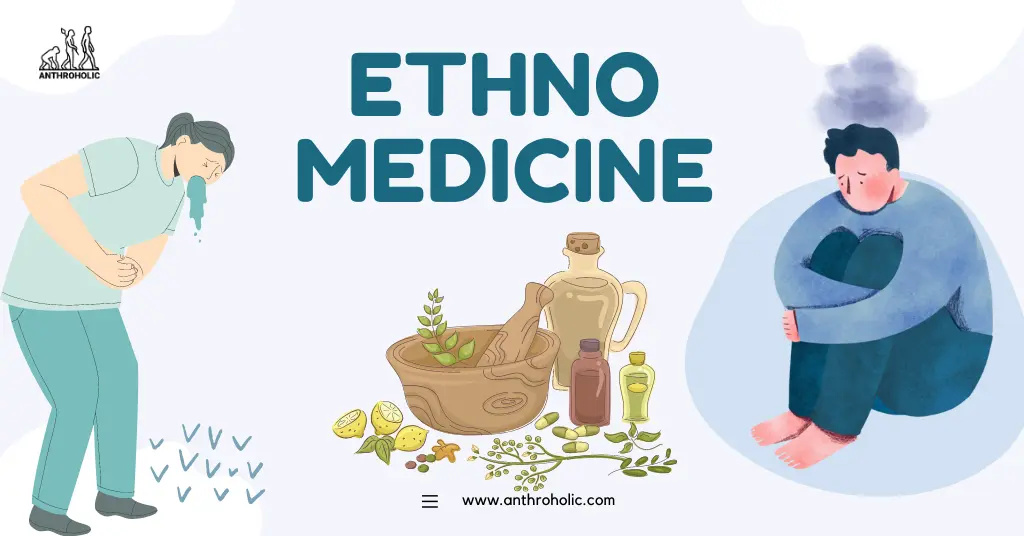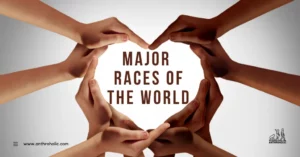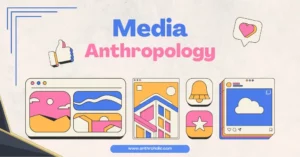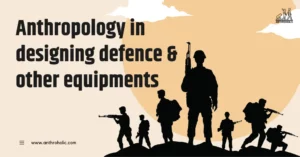AI Answer Evaluation Platform Live Now. Try Free Answer Evaluation Now
Ethno Medicine
Ethno Medicine explores how cultural beliefs and practices shape healthcare within different communities. This interdisciplinary study encompasses anthropology, ethnobotany, pharmacology, public health, and more [1]. Anthropologists provides an in-depth examination of ethno medicine, delving into its historical context, methodologies, key concepts, global applications, challenges, ethical considerations, and future prospects.

Historical Background
Prehistoric Era
- Early Humans: Primitive humans used natural substances, like plants and minerals, observing effects over time [2]. Practices involved trial and error and were passed down orally through generations.
- Shamanistic Practices: Shamans or spiritual healers played central roles within tribes. Rituals involved invoking spirits and using natural substances for healing [3].
Middle Ages
Greek Influence
Greek philosophies integrated with local practices, creating unique medical traditions across Europe [4]. This influence persists today in herbal medicine.
Islamic Golden Age
Islamic scholars advanced pharmacology, preserving Greek knowledge and combining it with local wisdom [5]. Many texts from this period continue to be referenced.
Modern Era
Colonial Impact
Colonization brought Western medicine to indigenous cultures, leading to the decline of some traditional practices.
WHO Recognition
The World Health Organization emphasized traditional medicine, recognizing its role in primary healthcare and driving policies for integration with modern healthcare.
Methodologies in Ethno Medicine
Qualitative Methods
Interviews and Surveys
Researchers conduct both structured and unstructured interviews to understand beliefs and practices. Surveys gather quantitative data on cultural practices, aiding in broader understanding.
Participant Observation
Living with communities, engaging in rituals, and keeping detailed field notes provides a profound understanding of daily life and traditional practices.
Quantitative Methods
Statistical Analysis
Patterns and prevalence of traditional practices are studied through statistical analysis, highlighting trends and commonalities.
Experimental Design
Researchers conduct controlled experiments to understand the efficacy of traditional remedies, often working closely with traditional healers.
Key Concepts
- Cultural Relativism: Viewing practices through cultural lenses without Western biases ensures objective understanding and avoids ethnocentrism.
- Biomedical Pluralism: Combining traditional and modern medicine fosters integration, recognizing the merits of both systems.
- Health Belief Models: These models explore how cultural beliefs shape health decisions, including choices about treatments and preventive behaviors.
- Ethnopharmacology: Studying herbal treatments and animal products’ use, ethnopharmacology connects traditional knowledge with modern pharmacology.
Applications of Ethno Medicine
Health Care Integration
Cultural Competence
Training healthcare providers for cultural sensitivity ensures respectful and effective care.
Policy Development
Including traditional practices in national health policies promotes holistic healthcare, reflecting diverse community needs.
Education and Awareness
Local Engagement
Community education ensures traditional practices are used safely and effectively, safeguarding public health.
Global Awareness
Highlighting ethnomedicine’s role in global health fosters understanding and collaboration across cultures.
Global Case Studies
- Ayurveda in India: A blend of ancient wisdom and modern practices, Ayurveda emphasizes balance and personalized care.
- Chinese Traditional Medicine: Global acceptance of practices like acupuncture reflects the integration of traditional Chinese medicine into mainstream healthcare.
- Native American Healing: Revival and preservation of Native American healing traditions are part of a broader cultural resurgence.
- African Traditional Medicine: African cultures harbor rich diversity in healing practices, reflecting complex social and environmental contexts.
Challenges and Ethical Considerations
Cultural Sensitivity and Appropriation
Misunderstanding
Misinterpretation of cultural practices can lead to stigma or inappropriate application.
Appropriation
Using traditional knowledge without proper credit or understanding can lead to exploitation.
Intellectual Property Rights
Protecting traditional knowledge from unauthorized commercialization preserves cultural integrity.
Evidence-Based Practice
Some traditional practices lack scientific validation, challenging integration with modern medicine.
Future Prospects
Research and Development
Pharmacological Studies
Researchers are analyzing active compounds in traditional remedies to develop new drugs and therapies.
Clinical Trials
Collaboration with traditional practitioners in clinical trials fosters mutual respect and holistic understanding.
Community Engagement and Preservation
Community-Based Approaches
Involving local communities in decision-making ensures ethnomedicine’s development reflects community needs and ethics.
Preservation
Documenting and preserving traditional knowledge safeguards cultural heritage for future generations.
Conclusion
Ethno Medicine is a multifaceted field with profound implications for global health. Understanding its historical evolution, methodologies, key concepts, applications, challenges, and future prospects reveals its complexity and richness. Ethnomedicine’s continued relevance underscores its vital role in fostering culturally sensitive, integrative, and ethical healthcare practices worldwide.
References
[1] Lee, R. (1993). The Dobe Ju/’hoansi. New York: Harcourt Brace College Publishers.
[2] WHO (2002). Traditional Medicine Strategy 2002-2005. Geneva: World Health Organization.
[3] Bernard, H. R. (2011). Research Methods in Anthropology. AltaMira Press.
[4] Geertz, C. (1973). The Interpretation of Cultures. New York: Basic Books.
[5] Boas, F. (1887). Cultural Relativism. American Anthropologist.




